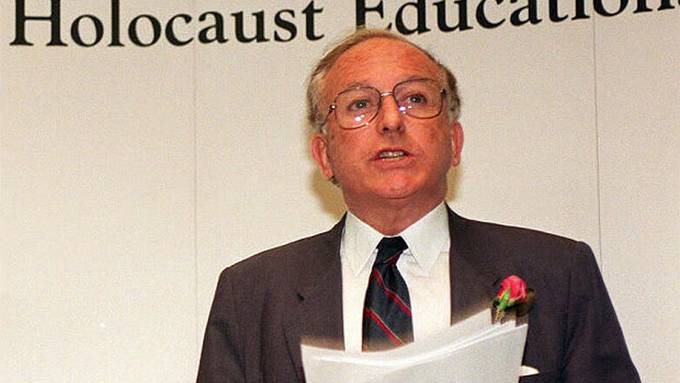Lord Greville Janner will not face child sex abuse trial after Crown Prosecution Service 'mistakes'
Source: telegraph.co.uk

Lord Greville Janner, the veteran Labour Peer, should have faced multiple child sex abuse charges twice in the past, but avoided trial due to Crown Prosecution Service (CPS) mistakes, it has been revealed.
The CPS admitted it had been wrong not to prosecute Lord Janner, first in 1991 and again in 2007, but said it would not be in the public interest to do so now as the 86-year-old was suffering from severe dementia.
Allegations against the former Labour MP date back to the late 1960s and refer to a children’s home in his Leicestershire constituency.
It had been claimed that he had used his influence to befriend the head of the children’s home in order to abuse youngsters in its care.
But despite prosecutors admitting there was enough evidence to charge the peer with 16 counts of indecent assault and six of buggery, his condition meant it was not in the public interest to proceed.
Prosecutors said he was not fit to take part in any proceedings and as there was no cure for his condition and no risk of future offending it had been decided to drop the case against him.
Child protection charities reacted with anger over the decision and Leicestershire Police said it was “exploring what possible legal avenues there may be to challenge the CPS” decision.
But it is the revelation that there were two previous missed opportunities to put Lord Janner on trial for alleged abuse, which will anger many and will further fuel suggestions that there has been an establishment cover up of VIP abuse in the past.
Allegations against Lord Janner first surfaced in 1991 during the trial of Frank Beck, the former head of three Leicestershire children’s homes.
One alleged victim claimed he had been groomed and abused by the then MP between the ages of 13 and 15.
Lord Janner used a speech in the House of Commons to vehemently deny the claims and following a police investigation the CPS announced there was insufficient evidence to prosecute.
In 2002 further allegations were investigated by Leicestershire Police but the information was not passed to prosecutors to consider.
Four years later in 2006 another alleged victim came forward with claims against three individuals, including Lord Janner, but again prosecutors mistakenly decided there was insufficient evidence to prosecute.
In a lengthy statement the CPS said: “The CPS has concluded that Lord Greville Janner should not be prosecuted because of the severity of his dementia which means he is not fit to take part in any proceedings, there is no treatment for his condition, and there is no current or future risk of offending.”
But the statement went on: “In relation to the other three previous investigations, the CPS also now considers that the evidential test was passed.
“It follows that the CPS judges that mistakes were made in the decision-making at the time by both the Leicestershire police in 2002 and the CPS in 1991 and 2007. Lord Janner should have been prosecuted in relation to those complaints.”
The statement continued: "It is a matter of deep regret that the decisions in relation to the previous investigations were as they were. Had the previous decisions been to prosecute, as they should have been, Lord Janner would have had the opportunity to challenge the evidence and defend himself through the trial process, with a jury ultimately deciding on his guilt or innocence some years ago.
"Victims of the alleged offences have been denied the opportunity of criminal proceedings in relation to the offences of which they have complained. It is of obvious and particular concern that such proceedings did not take place as a result of what the CPS now consider to be wrong decisions.
"In order to maintain public confidence in the administration of justice and to seek to learn appropriate lessons, the CPS has asked retired High Court Judge, Sir Richard Henriques, to conduct a thorough and independent review into the CPS decision making and handling of all past matters relating to this case; and to make whatever recommendations he considers appropriate. He has agreed to undertake this task."
Source: telegraph.co.uk






















